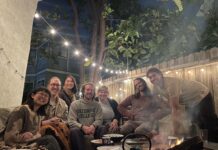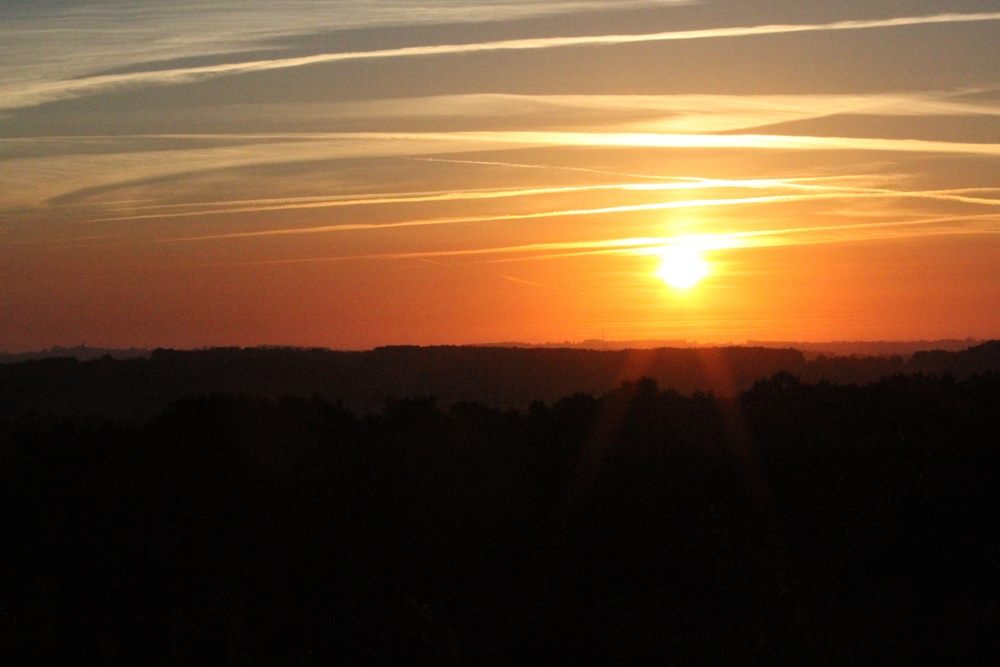By Jonathan Borella
As 18-35 year olds, Right Livelihood is an especially important practice. We’re at a time when we are beginning careers, developing passions, and finding our way in the world of professionalism.
It is also a time when the work place is vastly different from the one that employed previous generations. Today’s professional jobs are highly specialized, requiring an extremely focused area of education. At the same time, the economy changes so rapidly that some jobs become obsolete, making our education irrelevant. Technology, coupled with the age of recession, has made entry level jobs hard to come by. As a result, the workforce has shrunk at an alarming rate creating the modern phenomenon of a generation of baristas with Master’s degrees. With so few options and so little power in the workplace, practicing Right Livelihood may seem like a luxury enjoyed by a lucky few.
But first, a little history regarding my work experience: One summer in college, I found myself in Alaska working on a commercial fishing boat pulling wild caught salmon out of the bay. While this was a physically demanding job, the tranquility of the frontier provided enough rest and peace of mind to enjoy the work. When fishing season was over, I went back home and worked six months on an assembly line manufacturing luxury motorhomes; I didn’t return to college either. It was at this job that questions about my life’s direction began to arise, and I soon found myself dissatisfied with being merely a gear in our society’s production, consumption, waste, repeat machine. I was fired for too many absences and late arrivals. This was followed by a long period of unemployment – a time of my life characterized by depression, shame, and apathy. I consider it my lowest point fueled by thoughts that I was wasting my life, that I had no purpose, that I was a failure. Non-coincidentally, it was also the time that I found the Dharma.
We shouldn’t underestimate the importance of the Buddha’s advice in choosing work that is minimally harmful
Finally, I had some tools that helped me to look deeply within myself, identify my core values, and cultivate the energy to follow them. I took a job as a caregiver, finished my studies at the community college, transferred to the University of Oregon, and earned a degree in Family and Human Services. Since then, I’ve been serving people experiencing homelessness, addiction, crisis, oppression, and disability.
As a lay person, Right Livelihood has been a central component to my practice of the Buddha’s teaching. From what I’ve read, the Buddha basically described Right Livelihood as abstaining from a few professions that were harmful to living beings: namely selling weapons, slaughtering animals, serving intoxicants, fortune telling (or taking advantage of people’s superstitions), and making profit from profit (anyone else mad at bankers right now?).
Though the job market is immensely more complex, and our decisions confoundedly more complicated, we shouldn’t underestimate the importance of the Buddha’s advice in choosing work that is minimally harmful. Already, we can take great satisfaction from knowing that we are contributing to a healthy planet and population. But, to understand a more complex system requires closer scrutiny. If we want our livelihood to be an aspect of our spiritual lives, as we should if we are serious about waking up, we have to look a little deeper. One of the best ways to do that is to come to a Plum Village practice center, such as Deer Park Monastery. At Deer Park, we practice Right Livelihood every time we have a working meditation. Working meditation is an opportunity to transform our relationship to work. From a results driven effort, we reorient our energy to emphasize process, taking time to delight in life, cultivate awareness of our actions, and express gratitude for the gifts given to us and the opportunity to give in return.
To begin our practice, we find it beneficial to concentrate on simple tasks like sweeping the floor, scrubbing the toilets, or washing pots. These simple tasks help us to practice bringing our minds to our bodies and dwelling in the present moment as we work.
We rarely ask, “Since when is work the meaning of life?”
However, the attitude towards work is unique to our generation, at least in its depth and unquestioned devotion. We rarely ask, “Since when is work the meaning of life?” “Why do I expect work to be my source of fulfillment? “Why can’t I pursue my passions elsewhere?” Work wasn’t so complicated in previous generations – so heavy with existential crisis. People did what they had to to get by and found satisfaction in life through art, music, hobbies, and spiritual community. And maybe a few wise ones took pride in a job well done. Now that I think about it, I don’t think the janitor in my school was particularly passionate about his job, but I’m really glad he was there. But today, if I go see a counselor for career guidance, the advice I’m like to receive will orbit somewhere around the black hole of “do what you love.”
My dad would say that is backwards. His advice would be “love what you do.” My dad was a welder and construction worker when I was growing. He nurtured a hobby in computers until he trained and educated himself enough to get a job in IT. Now, he manages the networks and computer systems for a pizza chain that has locations all throughout the North West. Though he gets paid more, has better benefits, and more job security, he doesn’t particularly enjoy his job; I’m afraid he doesn’t really enjoy computers anymore either. So, are you sure that once you get that exciting dream job you’ll be happy? Loving what you do is Right Livelihood because it removes the preoccupation with a fantasy for the future and places happiness right in the present moment. Be careful, though, with the word “love.” Here, I don’t mean the kind of love had for something that brings pleasure. I mean the kind of love for something cared for and nurtured. When I love my work in that way, I invest myself one hundred percent. I find satisfaction not in what I do but in how I do it, and I look for ways to keep it fresh and relevant.
When I love my work in that way, I invest myself one hundred percent. I find satisfaction not in what I do but in how I do it, and I look for ways to keep it fresh and relevant.
During a Dharma talk, Sister Mai Nghiem asked us, “When do you feel the most free?” I feel the most free when I can let go of what I like and embrace what I don’t – when my attachments and aversions can no longer pull and push me around. What better time to practice that than at work?
But life really is work, isn’t it? My work isn’t finished at the end of my shift. I go home to do laundry, prepare meals, wash dishes, file forms, and on and on. There are always tasks to be done. If life is work, then work is life; that’s why it’s called “Livelihood.” Right Livelihood (“Right” as in the correct way to bring about satisfaction and contentment) is about living with this insight. It includes so much more than the job I have. It’s about the spirit I infuse into each of my daily actions. When I wash the dishes, do I use as little water as possible? Do I wait for the spider to cross my path before I continue sweeping the floor? What is the most beautiful and efficient way to format this spreadsheet? Do I treat every customer or client with respect and hospitality? If I work with the same kind of mindfulness and reverence as I enjoy when I dump the compost or scrub the pots at Deer Park, then I move steadily toward fulfillment and satisfaction at my job. At the same time, I find new and fresh ways to reduce harm and contribute to a happy and healthy society.
During a Dharma talk, Sister Mai Nghiem asked us, “When do you feel the most free?”
Much of meditation practice is about cultivating self-love, holding ourselves with unconditional positive regard, nurturing our bodies and minds with proper nutrition and kind thoughts. Yes, this often entails cutting ourselves some slack when we come up short, giving ourselves an excuse to rest when there is work to be done, and indulging in some “non-productive” joy. But there is another element in self-love that, unfortunately, doesn’t get discussed enough. For that topic, we return again to my dad, the Zen master.
This lesson comes from another episode of my growing pains. I can’t remember what exactly I had done, but whatever it was I had acted with carelessness, or inconsideration, or laziness; and, my dad was disappointed. Though the true meaning of his words took quite a few years to sink in, now that they have, I’ll remember them forever. He said, “I expect the best from you because I love you.”
Instead of asking “What is Right Livelihood?”, I’m realizing the proper question to ask is, “How is Right Livelihood?”
Because my dad loved me, he recognized my potential. He saw that I had something to offer others, and he considered his job to be helping me see it for myself and to hold me accountable to my responsibility to be the best person I could be. It is the same when we love ourselves. With a deep practice of self-love, I honor my potential; I take pride in my contribution to the environment I inhabit; and I don’t sell myself short. Sometimes I have to practice self-love by mustering up the motivation to do something I don’t really want to. Sometimes I have to make the best of an imperfect situation. Sometimes I have to look deeply to see the wondrous dimension of seemingly mundane tasks. I do this because my dignity, self-esteem and spiritual development are worth it. I do it because I love life and practice to show gratitude in my actions and attitude.
Instead of asking “What is Right Livelihood?”, as I explore more, I’m realizing the proper question to ask is, “How is Right Livelihood?” So far, the best answer I have is, “If it’s with love, it’s Right Livelihood.”

















